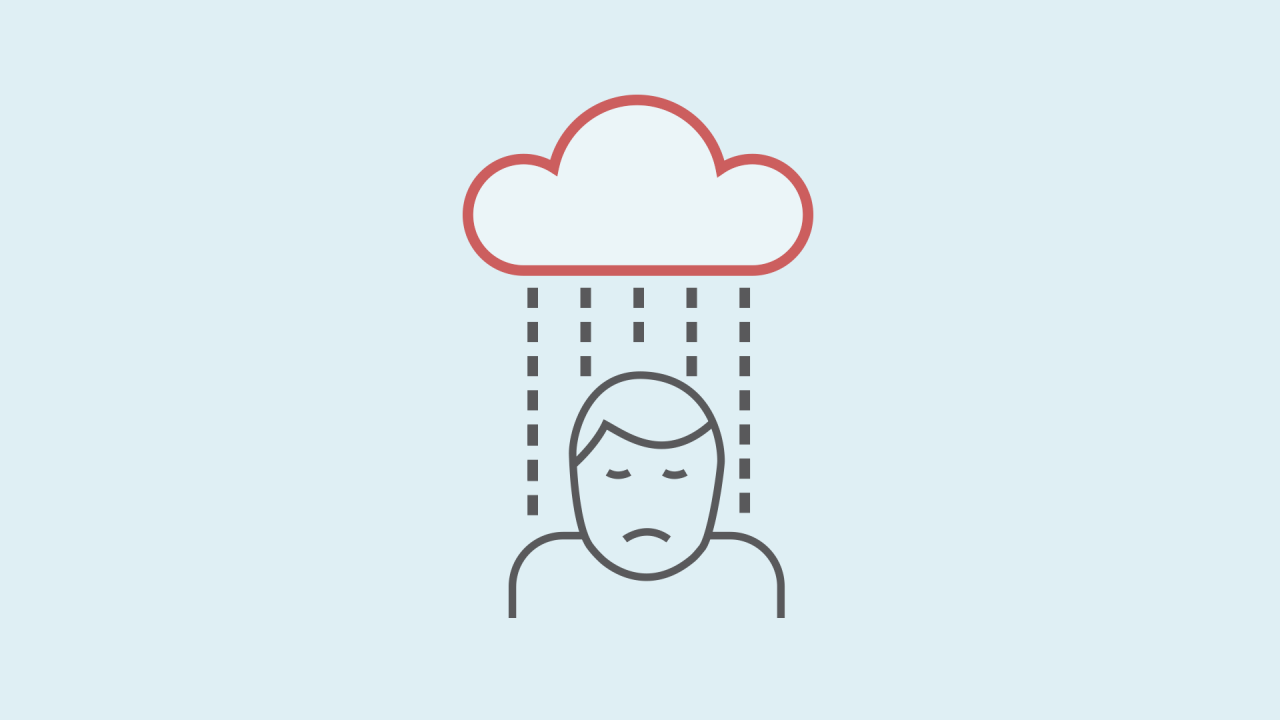.
On International Day of Happiness, Laughology's CEO, Stephanie Davies, asks: "Is it okay to be unhappy?"
You might think it's a bit odd that a happiness expert is writing about being unhappy? However the obsession the media and government seem to have with happiness has lead me to want to set the record straight. It’s OK to be unhappy - even on International Day of Happiness.
Let me start by saying I am a firm believer in helping people be happy but what I call ‘realistic happiness'. Furthermore I really do believe it's a positive step to for workplaces, governments and schools to focus on happiness. After all Laughology runs the National Happiness Awards. Though we also believe its ok not to be happy and that chasing happiness or the pressure to feel you have to be happy all the time can have negative effects. As an expert in the field of happiness and cognitive psychology I'm a firm believer in not hiding away from other emotions. Sadness, anger, anxiety, stress as well as joy and happiness are all part of the human condition. You cannot experience happiness and joy without experiencing other emotions too. For example the work we do at laughology. Over the years laughology has grown which is very exciting but also scary. Growing a business means greater responsibility and to put it bluntly more bills and at times anxiety and stress. So why do it? As a business owner I find great purpose in my role, helping and developing others in organisations as well as working with and developing the great people who are part of the Laughology team. I’ve learnt to cope with stress and not just cope but see it as a helpful emotion for making me get stuff done. I also have ways to manage my stress positively, such as working out, walking, playing the piano and talking to my team, sharing responsibilities and at times my concerns.
If I only pursued things in life that didn't stretch me and at times made me feel stressed, I wouldn't get the joy of working on large projects, making a real difference to workplaces and people's lives.
Another example is visiting my family. I get so much happiness and joy from being with them all, there's always lots of laughter and fun. Sadly they live far away, so when I leave, it makes me sad as I know it'll be a few months until I see them again. There doesn't always have to be sadness and happiness together but my point is, there is a huge emphasis on - 'how to be happy' without addressing the realities of life, that it can sometimes be tough. That's why I like the term 'realistic happiness.' Realistic happiness is about recognising it's ok not to be happy all the time and to have periods of sadness. It's also about recognising some people need more help than just 'cheering up'. It might be some people have low self-esteem and this is causing upset and anxiety in their life and job. There may be other more complex reasons for unhappiness too. Recognising and helping people with this is more than just cheering someone up. There's some great tips on for helping people with self-esteem and other more complex mental health issues that cause unhappiness on the NHS website. The point is, it’s about helping people get through life, the highs, the lows and everything in between and recognising it’s ok to have all kinds of emotions. At Laughology we understand this and that’s what realistic happiness is about.
Below we've put together some guidance on how to take positive steps if you or others are unhappy. How to recognise and deal with those moments when it's not going so well or you feel sad or stressed. You might think it's common sense and some of it is. Taking action is important. It is ok to be unhappy and have down days but it's also about recognising there is something you can do. Happiness isn't something you get and your there. You constantly have ups and downs in life and that's ok, without them, we would never experience happiness.
- If your sad, anxious or unhappy recognise what it is that's making you unhappy?
Is the thing making you unhappy because of your expectations of the experience or person and are those expectations rational. Is there another way to look at the situation that creates perspective? Try thinking about the situation differently from another perspective, think about it in a way a friend might who sees things differently to you. - Being unhappy is ok, if you're just having one of those days.
However check your internal dialogue and behaviours. Are they reinforcing your unhappiness or negative thoughts? Can you do something different to distract or divert how you feel, help yourself feel or think different. For example go for a walk in a green area, have your lunch outside somewhere relaxing for a change, chat to someone who can help you see things differently, watch or read something that makes you feel better. If you have negative thoughts about yourself, write down three things your proud of that you've achieved as well as three things you're great at. If you find this difficult ask someone who knows you well to help with this. Try doing this every day for a month. Keep the things somewhere you can re-cap on them when you need a reminder. - Eat the right stuff.
Now anyone will tell you, I love chocolate. I can easily devour a family fun size bag of revels in seconds before anyone can say watch out for the coffee ones. However I do recognise that it doesn't always make me feel great. Sugar can give you a massive high but also a huge crash. So eat a little or eat them at the right times. If you want comfort food, go for something like raw, whole foods peanut butter with banana on wholemeal bread with a cup of tea if you wish. Or strawberries if you need something sweet. It's not about only eating things that are better for you, they'll also release better energy and give you less of a crash throughout the day. Sometime we rely on sugar or alcohol to make us feel better and it can momentarily. However doing other things that have a greater long term impact are better. This way we don't have a crash when sugar, alcohol or other things wear off. Which can then make us feel worse. - Sleep well.
Working on sleeping well is important. Sleep is one of the best remedies for feeling better. There are simple tips like no phones in bedrooms or at least one hour before bed. Buy yourself an alarm clock and put your phone out the room. Go to bed at least 45 minutes before you sleep and relax, reading is good for this, no TV! Have a bedtime routine. Exercise and eat right throughout the day. Sleeping isn't about what you do before you go to bed, it's about what you do all day. Regularly getting up from your desk and having breaks throughout the day, will help your brain relax better later when you need to sleep. A great book on sleep is Tired but wired – by a brilliant lady called Dr Nerina Ramlakhan - Spend time with friends.
Friends are the best people to have a good chat with. They help you put things in perspective, will be honest when you need it and you don't have to put on a show. Making time to see them is important. Also supporting a friend can help you feel better too.
So enjoy world happiness day, it really is a good thing. But do remember it's ok not to be happy - it's what you do about it that counts.







































